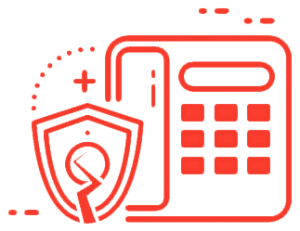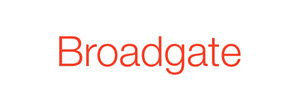Whilst we understand that no telecommunications system will be totally resistant to risk, Broadgate is dedicated to eliminating the risk that our customers face to the best of their ability. Whilst our advice regarding security can reduce the risk significantly.
The main points to consider are detailed below.
 It’s important that employees have the right type of training to use the system. Cases of Toll Fraud are extensively connected to the stealing of passwords and authorisation codes. It’s important that your staff protect these as best they can. No numbers used should ever be programmed into auto diallers or written down. If some of your staff that work away from the office, they should be made to understand that thieves could be listening in or monitoring phone calls with the intention of finding out the relevant numbers.
It’s important that employees have the right type of training to use the system. Cases of Toll Fraud are extensively connected to the stealing of passwords and authorisation codes. It’s important that your staff protect these as best they can. No numbers used should ever be programmed into auto diallers or written down. If some of your staff that work away from the office, they should be made to understand that thieves could be listening in or monitoring phone calls with the intention of finding out the relevant numbers.
Furthermore, it’s crucial to identity any person who places a collect call to the company before accepting charges. Receiving these phone calls where callers request being transferred, has always been a problem that has increased over the years. It is yet another way to gain access to an outside line and your network. The best way to deal with this is to create a system whereby your employees report any suspicious activity is immediately. The number of phone calls received or by the nature of the call can arouse suspicions too.
A good way to increase the security of your firm is to control your phone calls. Many thieves will find ways of making long distance calls that aren’t permitted. You can stop this in most cases by restricting or eliminating unnecessary calls to other countries, perfect if you know what countries you don’t do business with. You could also restrict the number of times calls are made or what calls workers are allowed to make. Phone calls made in the evening could be stopped by this too.
There are certain signals to be aware of to alert you to toll fraud. Many thieves will try to trick your workforce to gain access. They could ring you on an 0800 service or local access number for example, and ask to be transferred constantly between personnel until they get an outside line. We recommend all of the following are investigated; constantly hanging up the phone, obscene phone calls, wrong numbers, incidents that happen again and again of being asked for an invalid extension number, silent calls who wait for you to hang up, and callers who ask who they have reached. All of these techniques are constantly being used and your staff should be aware of, if they occur in your
office at any time.
The best form of protection is to use passwords, however there are many ways to make these even more secure. Using more characters is better. Avoiding patterns in your system like having digits following in order or of having the same numbers. Do not use access numbers or default passwords as they are easy to break. Stay away from making the password of those which are related to the owner or the same as the extension number, such as a social security number an I.D. or Room.
It’s recommended to change the passwords often, doing this quarterly is a good idea, as well as when anybody leaves the company who had access to them. You should also keep a regular check on your voice mail system. A fraudster could access board messages within this, making their own transfer or mailboxes until they find the outside line. You could stop this by making sure there are no spare, needless mailboxes, using internal calls only within the voice mail, or deleting mailboxes belonging to old employees immediately. Personal Identification Numbers should be changed routinely by their users when accessing voice mailboxes, taking on board the previous guidance of ensuring that these have the maximum amount of characters to eliminate any chance of a hacker getting in. Don’t publish remote access telephone numbers either as this puts you at risk.
Companies telephones can also be left open to fraud from automated attendants answering. The toll fraudsters can then move from the automated attendant and dial the 900 or 90XX extensions. These numbers connect them to outside lines after several exchanges. You can block or limit the capabilities of long-distance trunks or local dialling to prevent this from happening. In these circumstances block access codes like 900XXX can be used.
The best way to safeguard against toll fraud is to see the warning signs, and seek out anything unusual happening. This may include several incoming calls that have been recorded on your call detail followed by long outbound calls, out of hours calls or unrecognised calls to other countries you have done business with.
Take the following steps if you see any of these signs, as toll fraud can cause extensive losses that can escalate extremely quickly. Call your line/least cost routing provider and Broadgate. We will then be able to help prevent further occurrences of toll fraud from happening. Although there is no way to prevent toll fraud from happening you can educate your workforce and yourself to reduce the chance of it happening, stop it when it happens and thereby minimise the harm it can do. When security is at its lowest are the times most likely this will happen, normally outside of working hours.
By keeping a list of things to look out for as well as what to do if you notice them is a good rule of thumb.
Broadgate recommends that the customer seek insurance and include the telephone system related applications alongside the security policy against these acts held by the company.
Broadgate has taken all possible actions to prevent such incidents happening and won’t be held responsible for any costs sustained as a result to toll fraud of any kind.





























